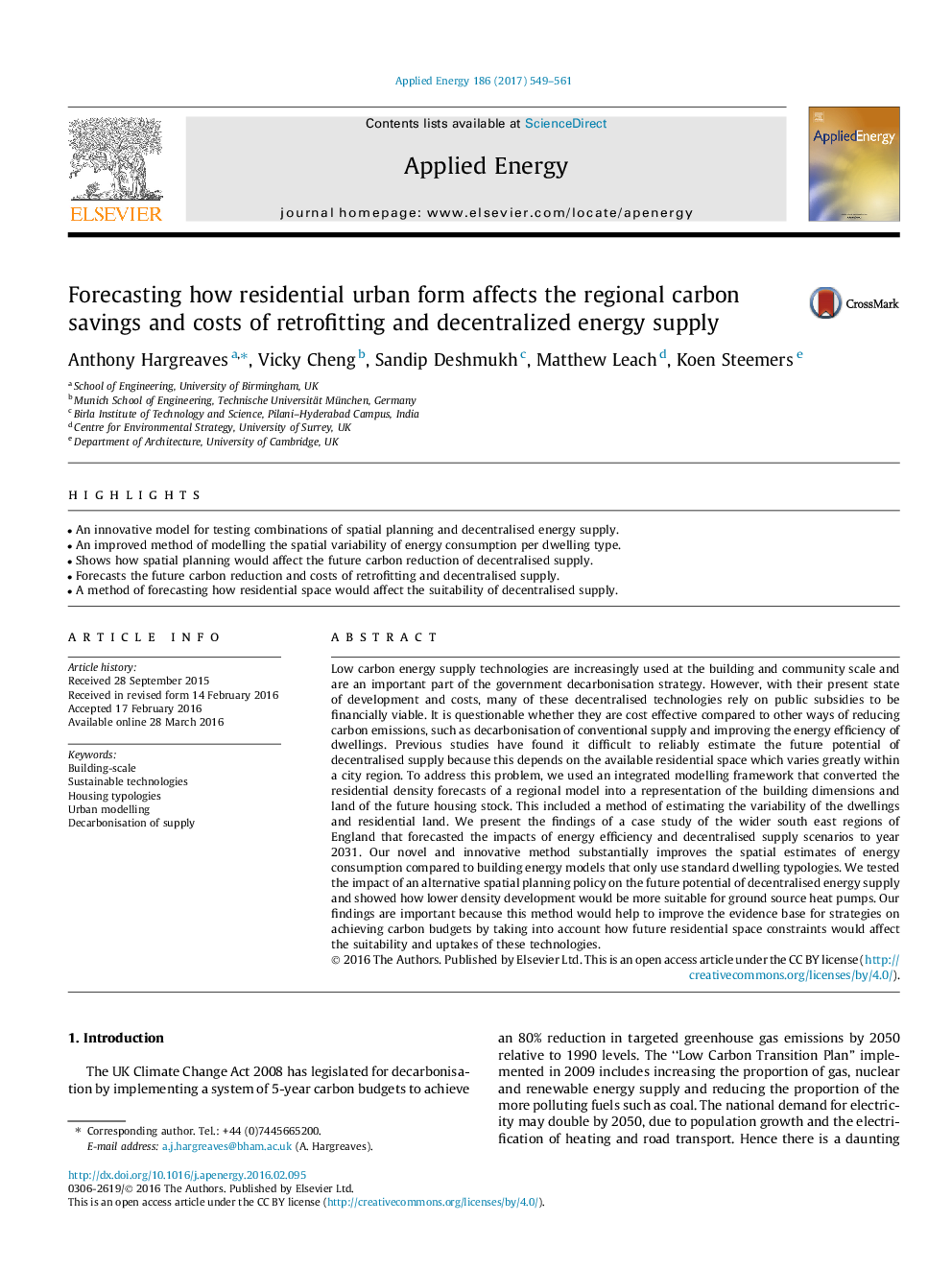| کد مقاله | کد نشریه | سال انتشار | مقاله انگلیسی | نسخه تمام متن |
|---|---|---|---|---|
| 4916820 | 1362735 | 2017 | 13 صفحه PDF | دانلود رایگان |
- An innovative model for testing combinations of spatial planning and decentralised energy supply.
- An improved method of modelling the spatial variability of energy consumption per dwelling type.
- Shows how spatial planning would affect the future carbon reduction of decentralised supply.
- Forecasts the future carbon reduction and costs of retrofitting and decentralised supply.
- A method of forecasting how residential space would affect the suitability of decentralised supply.
Low carbon energy supply technologies are increasingly used at the building and community scale and are an important part of the government decarbonisation strategy. However, with their present state of development and costs, many of these decentralised technologies rely on public subsidies to be financially viable. It is questionable whether they are cost effective compared to other ways of reducing carbon emissions, such as decarbonisation of conventional supply and improving the energy efficiency of dwellings. Previous studies have found it difficult to reliably estimate the future potential of decentralised supply because this depends on the available residential space which varies greatly within a city region. To address this problem, we used an integrated modelling framework that converted the residential density forecasts of a regional model into a representation of the building dimensions and land of the future housing stock. This included a method of estimating the variability of the dwellings and residential land. We present the findings of a case study of the wider south east regions of England that forecasted the impacts of energy efficiency and decentralised supply scenarios to year 2031. Our novel and innovative method substantially improves the spatial estimates of energy consumption compared to building energy models that only use standard dwelling typologies. We tested the impact of an alternative spatial planning policy on the future potential of decentralised energy supply and showed how lower density development would be more suitable for ground source heat pumps. Our findings are important because this method would help to improve the evidence base for strategies on achieving carbon budgets by taking into account how future residential space constraints would affect the suitability and uptakes of these technologies.
Journal: Applied Energy - Volume 186, Part 3, 15 January 2017, Pages 549-561
